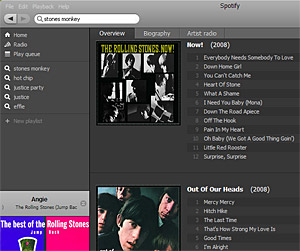 Spotify, the fab online music service, has been hit by hackers.
Spotify, the fab online music service, has been hit by hackers.
In a mail just sent out to Spotify users, they reveal that the Spotify protocol – the method they use to transfer music to subscribers – has been compromised by a hacking group.
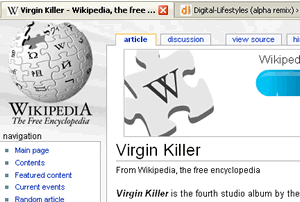 The recent story about Wikipedia being censored by a large number of UK ISPs has raised a lot of blog post/ tweets / column inches about quite how terrible / good it is that our Internet is not free and open.
The recent story about Wikipedia being censored by a large number of UK ISPs has raised a lot of blog post/ tweets / column inches about quite how terrible / good it is that our Internet is not free and open.
Wake up UK! … this ain’t nothing new.
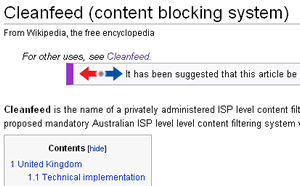 Given all of the attention on the banning of Web sites in the UK (read Wikipedia / Scorpions album), we thought we’d give you the inside view on how it comes about.
Given all of the attention on the banning of Web sites in the UK (read Wikipedia / Scorpions album), we thought we’d give you the inside view on how it comes about.
The setup
If a member of the public raises an objection to a Web site to the Internet Watch Foundation (IWF), the IWF takes a look at it to judge if it’s objectionable (btw – they’re one of the few bodies in the UK legally allowed to view the child pr0n)
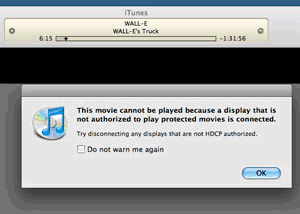 It’s looking like Apple has built copy protection into their new laptops, without bothering to tell prospective purchasers about it.
It’s looking like Apple has built copy protection into their new laptops, without bothering to tell prospective purchasers about it.
The currently Apple-faithful who have bought the new laptops, including the MacBook Pro and MacBook Air, are finding that if they try to play films – that they have legitimately rented through Apple iTunes Store – through a non-HDCP external screen or projector are begin met with a message “This movie cannot be played because a display that is not authorised to play protected movies is connected.”
Not surprisingly this has angered them a great deal – and quite rightly in our view.
Given how Apple go to a great of effort in launching their products to the world, we think it’s pretty disingenuous not to mention that the laptops that are being bought have High-bandwidth Digital Content Protection (HDCP) built into them.
 You may have seen that every now and again we’ll point out new features in Google’s applications.
You may have seen that every now and again we’ll point out new features in Google’s applications.
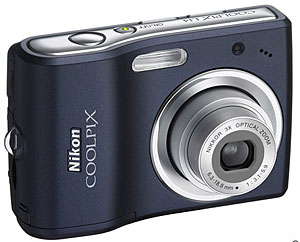 Here’s another tale of UK data loss that has to be one for the “You couldn’t make it up” files.
Here’s another tale of UK data loss that has to be one for the “You couldn’t make it up” files.
An Englishman has bought a Nikon Coolpix camera from eBay for £17 that had lots of secret information stored on it.
According to The Sun, list is considerable.
Although The Sun isn’t explicit — not surprisingly, as why would they confuse their readers — it appears that other data was held on the memory card, but not as photos. These include names, snaps, fingerprints and suspects’ academic records.
Special Branch attention
Having realising what he had, the eBay purchaser reported his findings to the police where he lived, at Hemel Hempstead.
Despite the officers apparently not taking it seriously, the anti-terrorist Special Branch officers turned up at his home and removed the camera and the computer that the pictures had been downloaded to – giving them £1,000 to buy a replacement.
It’s reported that investigation are being made into the seller of the equipment.
 A strong sense of Deja Vu is flowing thick around the Digital-Lifestyles offices today as we hear that ‘Hollywood’ is to take legal action against Real Network for their DVD copying software, RealDVD.
A strong sense of Deja Vu is flowing thick around the Digital-Lifestyles offices today as we hear that ‘Hollywood’ is to take legal action against Real Network for their DVD copying software, RealDVD.
Five years ago last month, the collected legal might of the Hollywood studios took a disliking to 321 Studios as they too had the temerity to create and sell software that allowed people to copy their DVDs.
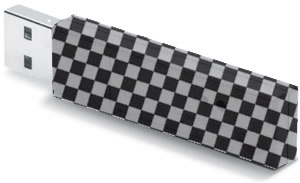 It’s starting to feel like we could almost start a new site _just_ about data loss in the UK.
It’s starting to feel like we could almost start a new site _just_ about data loss in the UK.
The latest is West Midlands Police who are reported as having lost a 4GB USB memory stick containing unencrypted classified information about suspected terrorists.
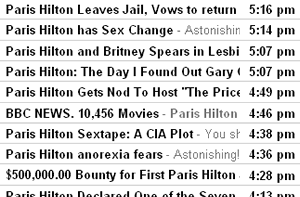 I’ve got over 78,000 spam emails sitting in my Gmail account – and that’s with them auto-deleting after three months. Crazy isn’t it?
I’ve got over 78,000 spam emails sitting in my Gmail account – and that’s with them auto-deleting after three months. Crazy isn’t it?
Normally there’s very little humour to the messages, but we can see spammers trying new methods like the news scam that they came up with recently.
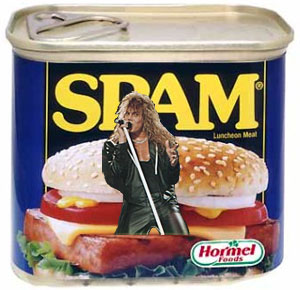 The quantity of stinking spam heading into your inbox may depend on the first letter in your e-mail address, claims a new study.
The quantity of stinking spam heading into your inbox may depend on the first letter in your e-mail address, claims a new study.
After analysing more than 500 million junk messages, University of Cambridge computer boffin Dr Richard Clayton discovered that e-mail addresses starting with an “A”, “M” or “S” were plagued with around 40% of spam in their mailboxes.